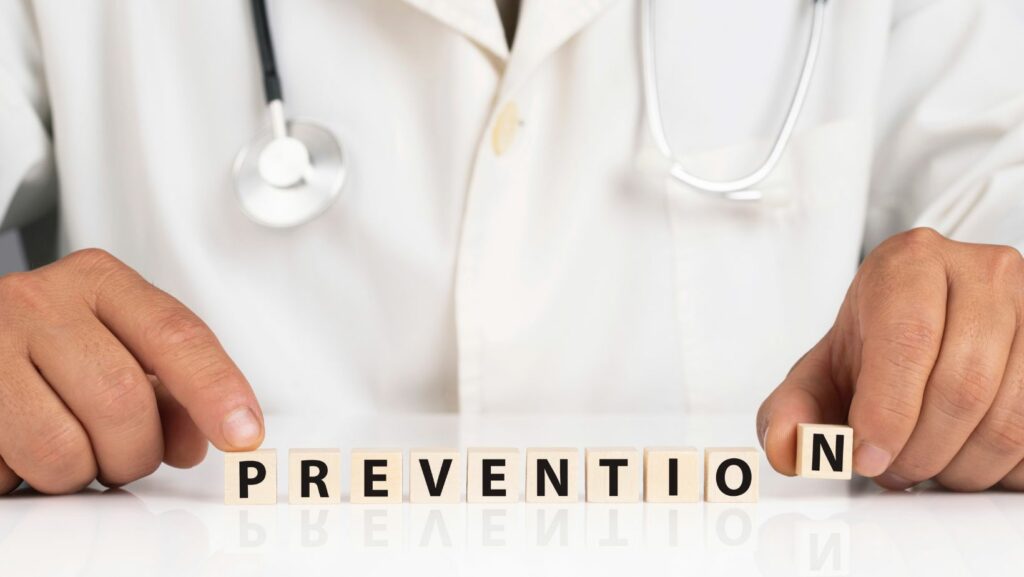Key Takeaways
- Preventive Health Care: Prioritizing preventive care significantly enhances a dog’s lifespan and overall quality of life by focusing on proactive measures rather than solely treating illnesses.
- Regular Veterinary Check-ups: Scheduling check-ups every six to twelve months allows for early detection of potential health issues and timely interventions that improve treatment outcomes.
- Importance of Vaccinations: Keeping up with vaccinations protects dogs from serious diseases and should be adjusted according to the dog’s age, lifestyle, and risk factors.
- Balanced Nutrition: Providing a balanced diet that includes essential nutrients is crucial for a dog’s health, supporting immune function and preventing obesity-related conditions.
- Exercise and Mental Stimulation: Regular physical activity and mental enrichment are vital for maintaining both physical health and behavioral well-being in dogs.
- Dental Care: Regular dental check-ups and cleanings are essential to prevent dental diseases, which can lead to more significant health problems in dogs.
Every dog owner wants their furry friend to live a long and healthy life. Preventive health care plays a crucial role in achieving that goal. By focusing on proactive measures rather than reactive treatments, pet parents can significantly reduce the risk of diseases and ensure their dogs remain vibrant and happy.
Regular check-ups vaccinations and a balanced diet are just a few components of a comprehensive preventive health care plan. These practices not only help in early detection of potential health issues but also promote overall well-being. Understanding the importance of preventive care can empower dog owners to make informed decisions that enhance their pet’s quality of life.
Preventive Health Care for Dogs
 Preventive health care for dogs plays a crucial role in enhancing their lifespan and overall well-being. Regular veterinary check-ups, typically every six to twelve months, ensure early detection of potential health issues. These visits facilitate timely interventions, improving treatment outcomes.
Preventive health care for dogs plays a crucial role in enhancing their lifespan and overall well-being. Regular veterinary check-ups, typically every six to twelve months, ensure early detection of potential health issues. These visits facilitate timely interventions, improving treatment outcomes.
Vaccinations form another critical component of preventive care. Keeping vaccinations up to date protects dogs from serious diseases such as rabies, parvovirus, and distemper. Vaccination schedules should align with veterinary recommendations based on the dog’s age, lifestyle, and risk factors.
A balanced diet contributes significantly to a dog’s health. Proper nutrition supports immune function and reduces the risk of obesity-related conditions like diabetes and arthritis. Dog owners should consult veterinarians for personalized feeding guidelines based on breed, age, and activity level.
Behavioral assessments during check-ups help identify stressors or behavioral issues early. Addressing these concerns can improve the dog’s quality of life and strengthen the bond between the pet and owner.
Dental care also requires attention, as dental diseases can lead to systemic health problems. Regular teeth cleaning and dental check-ups prevent tartar build-up and gum disease.
By prioritizing these preventive measures, dog owners create a foundation for a healthier, happier life for their pets. Understanding the importance of preventive health care enables informed decision-making, positively impacting their dogs’ well-being.
Common Preventive Health Measures
Preventive health measures are essential for maintaining a dog’s well-being. They encompass vaccinations, parasite control, and regular checkups.
Vaccinations
 Vaccinations protect dogs from serious illnesses. Core vaccines, such as rabies, distemper, and parvovirus, are recommended for all dogs, while non-core vaccines may be necessary based on individual risk factors. Vaccination schedules should adapt to a dog’s age, lifestyle, and exposure to disease. Puppy vaccinations typically start at 6 to 8 weeks of age and continue until the dog is around 16 weeks old. Annual boosters are often needed for certain vaccines, ensuring continued immunity.
Vaccinations protect dogs from serious illnesses. Core vaccines, such as rabies, distemper, and parvovirus, are recommended for all dogs, while non-core vaccines may be necessary based on individual risk factors. Vaccination schedules should adapt to a dog’s age, lifestyle, and exposure to disease. Puppy vaccinations typically start at 6 to 8 weeks of age and continue until the dog is around 16 weeks old. Annual boosters are often needed for certain vaccines, ensuring continued immunity.
Parasite Control
Parasite control is vital for dog health. Dogs should receive preventive medications for fleas, ticks, and intestinal worms throughout the year. Monthly treatments for fleas and ticks help prevent infestations, while routine fecal tests can identify intestinal parasites. Some dogs may require additional preventive measures based on their environment and lifestyle, like those that spend time in wooded areas or near bodies of water, increasing exposure to ticks and other parasites.
Regular Checkups
Regular checkups at the veterinarian support early detection of health issues. Veterinary visits every six to twelve months allow for comprehensive physical examinations, blood tests, and dental cleanings. During these visits, veterinarians can monitor weight, assess dental health, and discuss nutrition and exercise needs. These assessments help identify potential health risks before they escalate, facilitating timely and effective treatment when necessary.
Nutritional Considerations
Nutritional considerations play a crucial role in preventive health care for dogs. A well-rounded dietary plan supports overall health, enhances immune function, and helps prevent obesity-related conditions.
Balanced Diet
A balanced diet includes essential nutrients that promote optimal health. Proteins, carbohydrates, fats, vitamins, and minerals should be proportionally represented in dog food. Quality protein sources, like chicken, beef, or fish, contribute to muscle health and energy levels. Whole grains, such as brown rice and oats, offer fiber for digestive health. Healthy fats, found in fish oil and flaxseed oil, support skin and coat vitality. Fresh fruits and vegetables provide antioxidants that bolster the immune system. Consulting with a veterinarian helps tailor feeding guidelines based on the dog’s age, breed, and health status.
Supplements And Vitamins
Supplements and vitamins can enhance a dog’s health when necessary. Omega-3 fatty acids support joint health and reduce inflammation, especially in older dogs. Glucosamine and chondroitin sulfate are beneficial for maintaining joint cartilage. Probiotics aid in gastrointestinal health by promoting beneficial bacteria. Multivitamins may help fill gaps in nutrition for dogs on homemade diets. It’s essential to consult a veterinarian before introducing new supplements to ensure they are suitable for the dog’s individual needs.
Exercise And Mental Stimulation
Exercise and mental stimulation are vital components of preventive health care for dogs. They promote physical fitness, behavioral health, and deeper bonds between pets and their owners.
Physical Activity
Physical activity keeps dogs fit and reduces the risk of obesity and related health issues. Regular exercise should include activities like walking, running, or playing fetch. Aim for at least 30 minutes to 2 hours of exercise daily, depending on the dog’s breed, age, and energy level. High-energy breeds, such as Border Collies and Labrador Retrievers, typically require more intensive exercise, while smaller or older dogs may thrive on shorter, gentler walks. Swimming also serves as an excellent low-impact option for active dogs, providing cardiovascular benefits without stressing joints.
Mental Enrichment
Mental enrichment combats boredom and enhances cognitive function in dogs. Engaging activities include puzzle toys, obedience training, and scent games. Puzzle toys promote problem-solving skills and help keep dogs occupied, while formal training reinforces commands and enhances focus. Scent games encourage natural sniffing behavior and can be set up using hidden treats around the house or yard. Interactive playdates or visits to dog parks also offer dogs opportunities for socialization and stimulate their minds. Incorporating these activities regularly supports emotional well-being and prevents behavioral issues, ensuring happy, healthy pets.
Long and Vibrant life
Preventive health care for dogs is essential for ensuring a long and vibrant life. By prioritizing regular veterinary visits vaccinations and a balanced diet dog owners can significantly enhance their pets’ well-being. Incorporating exercise and mental stimulation into daily routines not only supports physical health but also nurtures emotional connections.
Being proactive about dental care and parasite control further contributes to a dog’s overall health. With a comprehensive preventive care plan in place dog owners can enjoy peace of mind knowing they’re taking the best possible care of their furry companions. Investing time and resources into these preventive measures pays off in the form of a happier healthier dog.



